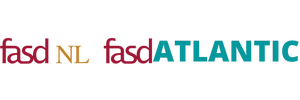Atlantic Community Network Blog
The Atlantic FASD Community Network brings together people from the Atlantic provinces (Nova Scotia, New Brunswick, Prince Edward Island, Newfoundland and Labrador) whose work focuses on or intersects with fetal alcohol spectrum disorder (FASD) at the community or committee level. The Network aims to move forward FASD initiatives in the Atlantic region through collaborative efforts around awareness, prevention, education, intervention, and knowledge mobilization.
This blog is an initiative led by the Atlantic FASD Community Network. It aims to capture the experiences and views of various individuals working or living with FASD in the Atlantic provinces.
We respectfully acknowledge the territory on which we gather and conduct our work as the ancestral and unceded territory of a diverse number of groups including Mi’kmaq, Beothuk, Wolastoqiyik (Maliseet), Passamaquoddy, Innu and Inuit. We strive for respectful partnerships with all the peoples (Indigenous and non-Indigenous) of the Atlantic provinces as we search for collective healing and true reconciliation and honour this beautiful land together.
This blog is an initiative led by the Atlantic FASD Community Network. It aims to capture the experiences and views of various individuals working or living with FASD in the Atlantic provinces.
We respectfully acknowledge the territory on which we gather and conduct our work as the ancestral and unceded territory of a diverse number of groups including Mi’kmaq, Beothuk, Wolastoqiyik (Maliseet), Passamaquoddy, Innu and Inuit. We strive for respectful partnerships with all the peoples (Indigenous and non-Indigenous) of the Atlantic provinces as we search for collective healing and true reconciliation and honour this beautiful land together.

 RSS Feed
RSS Feed